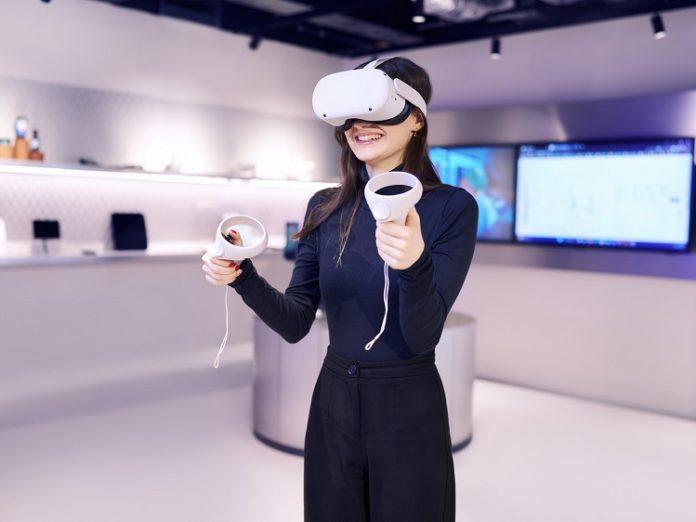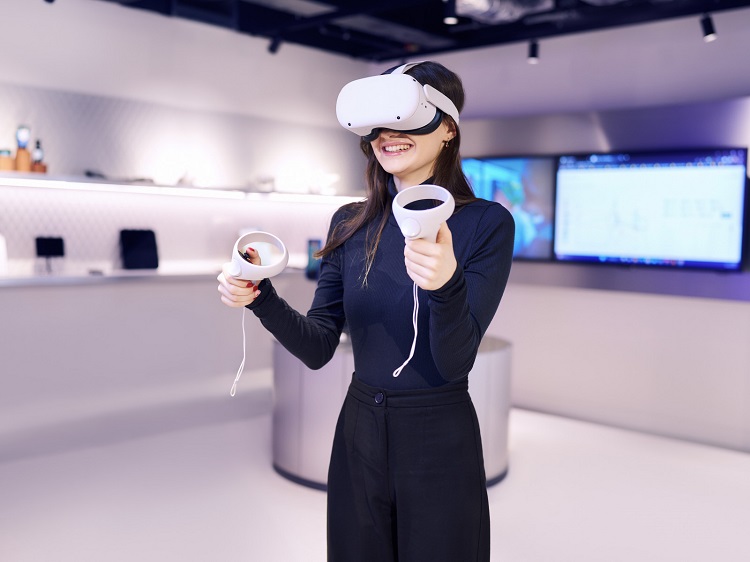
Londoner, Aayza, has bitter sweet memories of her A-level computing classes – while she adored the subject and excelled at it, she felt out of place.
“I often felt like I didn’t fit in in a classroom full of boys,” said Aayza, who became the first woman in her family to go to university and land a professional job.
“When there’s nobody that looks like you in a room, it’s natural to doubt yourself and question whether you belong.”
Aayza was among thousands of young women bucking the worrying trend of avoiding a career in technology when she signed up for the FastFutures and BT Group Data Bootcamp – designed to develop skills in demand by employers, such as data analysis.

New BT Group research of 11 to 17-year-olds in the UK shows nearly double the number of boys described themselves as ‘very well suited’ to a career in tech compared to girls (25% vs 13%).
Girls were twice as likely to say they were ‘not very well suited’ to the industry (14% vs 26%) and half as likely as boys to desire a career in tech (30% vs 15%). Girls were also far less likely to believe there is nothing holding them back from a tech career (36% boys vs 23% girls).
When presented with a list of career options, the majority of children who took part in the study chose stereotypically gendered jobs. Girls gravitated towards nursing and fashion careers, while boys tended to pick video game design, software engineering and sports-related careers (see chart).
The research confirmed that these stereotypes are being reinforced at home and, more importantly, school. Just two thirds of 11-17 year old girls said they had been encouraged to work in a tech career by their families and teachers, compared to more than three quarters of the boys who took part in BT Group’s study.
Aayza added: “My family emigrated from Pakistan and I’m the first to go to university and get a professional job that isn’t skilled labour. It’s not really common for women to go to university back in Pakistan.
“At school, wearing a hijab in a classroom of mostly white boys meant I felt even more out of place. Although tech was my passion, I ended up studying maths in university with the goal of becoming an accountant.
“I did modules in AI and, even though I was still in the minority, I learned to trust in my own skills to overcome the feeling of not belonging.”
After graduating from Kingston University in Surrey, Aayza joined the FastFutures and BT Group Data Bootcamp offering practical data analysis skills and employability support.
“I didn’t really have anyone to go to for practical advice about starting a career – it was just me trying to figure things out myself which was a bit scary. The BT Group programmes were a massive help and they gave me the skills I needed to land my first job as a data consultant,” she said.
The study also found that over half (51%) of girls think tech careers are advertised more to boys and nearly eight in 10 (78%) said there are not enough female role models in the tech industry.
Victoria Johnson, Social Impact Director at BT Group, said: “In this research and in the workshops we run in schools across the country, the trend is clear – when compared to boys, many girls feel like tech careers are not for them.
“This isn’t to say they are uninterested, or even that they are less confident with tech. To a lot of girls, careers in tech feel exclusive to men.
“Our research reveals there is still a lot of work to be done in supporting girls to thrive in the world of tech. It is critical we get this right now, rather than having to try and undo the problems it may cause in the future.
“Initiatives like our ‘Work Ready’ events are crucial to changing perceptions among young girls, providing them with the necessary insight and support to instil in them a confidence to chart their path into the world of work, unrestricted by outdated gender norms.”
It comes as BT Group delivers its Work Ready programme in schools across the UK to prepare students for the world of work, connecting their STEM curriculum learning with skills that are in demand by employers. The programme aims to bridge the digital gaps for young people including girls and people with disabilities.
These events are taking place in schools across the UK in June and July including Belfast, Birmingham, Darlington, Gosforth, Manchester and London. They are part of BT Group’s response to the Skills and Post-16 Education Act 2022, supporting young people in gaining tech skills for the workplace.









